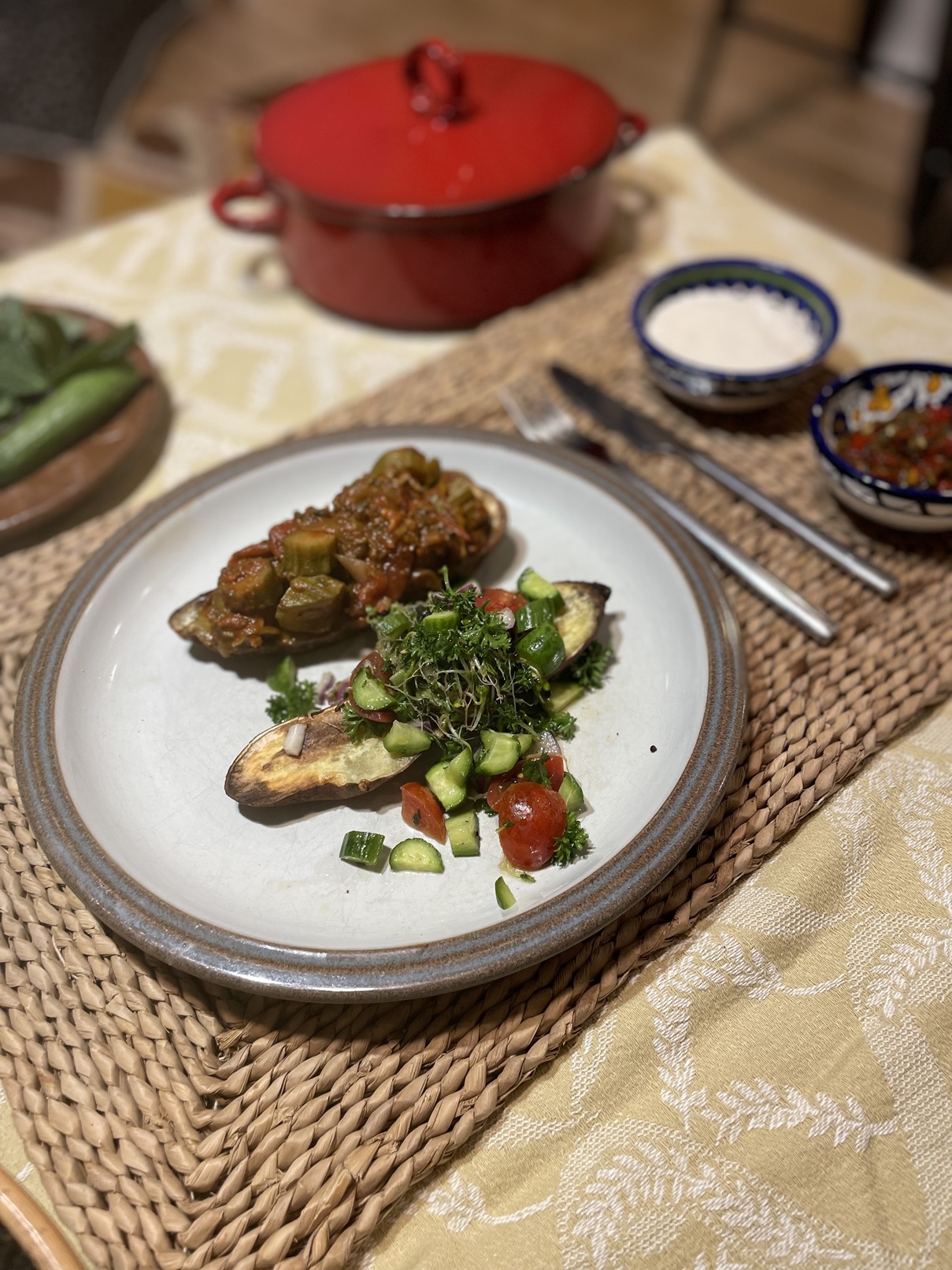

Simplicity doesn’t mean boring. It means letting the ingredients speak for themselves. A ripe tomato drizzled with olive oil and a sprinkle of sea salt on a warm slice of fresh sourdough; these are dishes that rely not on flashy techniques, but on quality and nutrition, natural food that is available either in our gardens or at the local market.
Simple food also fosters connection. It’s easier to prepare, making it more accessible to home cooks. It invites us to slow down, to savour, and to share. Cooking becomes less about performance and more about nourishment — both physical and emotional.
At its core, food is meant to sustain us and bring people together. Simplicity honours that purpose. It reminds us that we don’t require much at all to find health, that real joy is found in the most unassuming bite.
Simplicity is the answer to our health and climate crisis — if we turn to simple cooking using fresh local produce we are resilient and self-reliant.
To be satisfied with simple food is a mindful practice, it is the antithesis of the fast-paced world, run by marketing and sales, driving us to always want more.
Simplicity brings contentment and gratitude, peace and a sense of relaxation, and a realisation that the most important things are already here provided by nature.
The recipes here are very simple, as promised, and can be altered and adapted according to the season. For example, use potatoes instead of kumara and parsley instead of coriander. Enjoy!
Baked whole kumara with coriander and zucchini ratatouille
Serves 4
Ingredients
4 kumara sliced in half lengthwise
4 zucchini cut into 2cm pieces
1 red onion, chopped into 1cm pieces
10 garlic cloves, chopped
2 Tbsp paprika
½ tsp salt
¼ tsp chilli powder (optional)
1 bunch of fresh coriander, chopped
1 can chopped tomatoes or 6 fresh tomatoes cut into quarters
½ cup water
Olive oil for cooking
Method
Preheat the oven to 200°C.
Brush the kumara with olive oil, place on a lined baking tray, cut size up, and roast in the oven for 30 minutes or until cooked.
Place a medium-size pot on the stove on medium heat, drizzle some olive oil to cover the bottom of the pot and let it heat up for ½ a minute, place the onion and garlic and fry for 5 minutes then add the zucchini and fry for another 5 minutes.
Add the tomatoes, water and coriander and cover the pot to bring to a simmer, add the paprika salt and chilli if using, tilt the lid and cook for 20 minutes or so, stirring often.
Taste and adjust the salt, turn off the heat and let rest for 10 minutes covered.
To serve
Place two halves of the kumara on a plate and spoon the ratatouille on top, drizzle with tahina and a dollop of harissa.
Tahina
Ingredients
2 Tbsp tahini
¼ tsp salt
½ cup water
Some freshly ground black pepper
Method
Place all the ingredients in a small mixing bowl, accept the water, add half of the water and stir quickly to mix well — add the rest of the water or more to create a silky runny consistency, adjust the salt to your taste.
This keeps well in a clean jar in the fridge for a few days.
This is a quick method or a "hack" — I use jars of chopped chilli as a way to make harissa in the cold south — where fresh chillies are not in abundance.
Harissa
Ingredients
1 small jar of chopped preserved chilli or (4 fresh chillies with seeds)
½ bunch of fresh coriander (½ cup chopped coriander)
2 garlic cloves
¼ tsp salt
1 tsp whole caraway seeds
Method
Place all ingredients in the food processor and pulse to chop and mix.
Don’t over process, so it is still nice and chunky. Place in a jar if you are not serving straight away — this will keep well in the fridge.
Event dates
• Healing Foods cooking class, May 20 at The Valley Project. Tickets on website hagarozri.co.nz.
• The benefits of a plant-based diet, September 3, part of a series of talks called When Enough is Enough (more info U3A website u3adunedin.org.nz).














